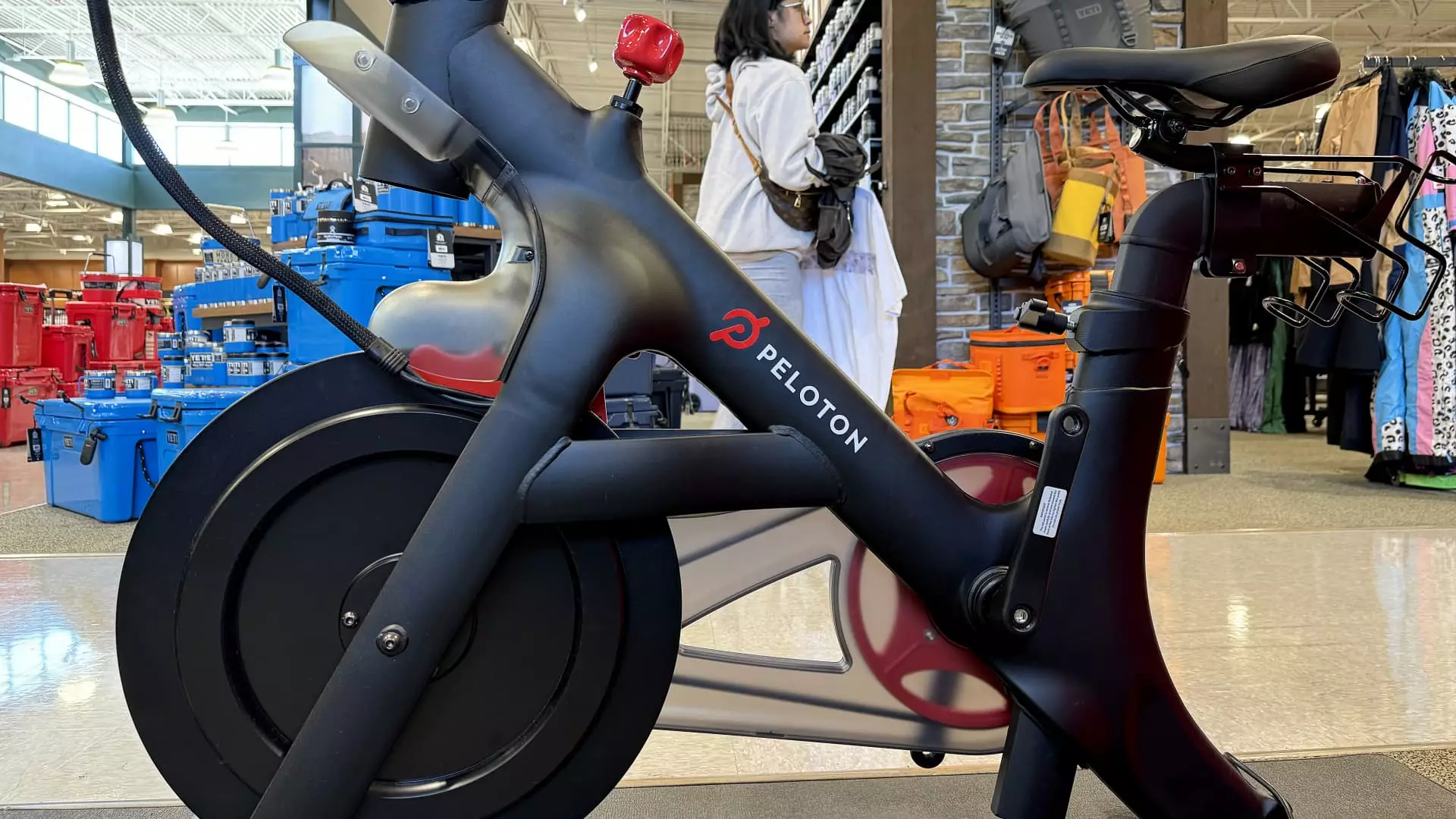In a move that feels both audacious and perhaps a tad desperate, Peloton has unveiled its latest initiative: Repowered, a new marketplace designed for members to sell their pre-owned equipment. This strategy attempts to tap into the significant pile of unused bikes and treadmills gathering dust in homes around the country. On the surface, it appears innovative, a way for the fitness giant to both reclaim market share and instigate a refreshing secondary market. However, the question looms larger: is this a strategic effort to breathe new life into a faltering business model, or a sign of deeper underlying issues?
The intrinsic beauty of Repowered is its accessibility; members can easily list their used Peloton products and set their prices. The integration of a generative AI tool further complicates this landscape, offering price suggestions that consider the item’s age and condition. While it sounds effective, one must wonder: does AI truly understand the nuances of market value when it comes to personal fitness equipment? Therein lies a potential pitfall. Reliance on technology might oversimplify the decision-making process for sellers, robbing them of the vital role of personal judgment in their financial transactions.
Profit Margins and Perceived Value
The financial model here is intriguing. Sellers net 70% of the sale, with Peloton retaining a significant portion alongside its platform provider, Archive. While the incentive structure appears favorable for sellers, one cannot help but critique the fact that Peloton, a company already facing backlash for its seemingly exorbitant subscription prices, is still prioritizing profit margins over individual user needs. Shouldn’t a platform designed for community and fitness empowerment first and foremost foster better deals for users rather than carve into their earnings?
By offering discounts toward new equipment and decreasing activation fees for used items, Peloton attempts to sweeten the pot. But this feels like a classic case of putting a band-aid on a much deeper wound. The underlying problem of churn remains unaddressed. Those who bought used equipment typically belong to a demographic more interested in a bargain than brand loyalty, which contrasts sharply with Peloton’s core engaging community ethos.
Response to Consumer Demand or a Moment of Panic?
This new marketplace certainly caters to the growing resale market, reflecting a shift in consumer behavior. Many fitness enthusiasts now favor budget-conscious decisions over brand prestige. The $45 activation fee (down from $95) indicates Peloton is genuinely trying to make secondhand purchases appealing. However, does this not also reveal a fear of declining sales amid rising competition? The uptick in subscribers buying used bikes from peer-to-peer platforms like Facebook Marketplace suggests that evidence of growing disinterest in Peloton’s original offerings is palpable.
As Peloton grapples for relevance, it finds itself in direct competition not just with secondary markets but also with resellers like Trade My Stuff. The fact that its CEO has indicated no affiliation with them, despite previous talks of collaboration, raises eyebrows. If a company as dominant as Peloton still feels threatened by smaller startups, it indicates a shift in power dynamics within the fitness industry. Authenticity and transparency should be the foundation for this new venture, yet Repowered risks being perceived as a mere corporate response to market pressure rather than a genuine offer of community engagement.
Community Connection: More Than a Marketing Strategy
What is particularly troubling about the rollout of Repowered is its potential to fracture the community sentiment Peloton has worked so hard to establish. Enthusiasm for group workouts and the communal experience of pursuing fitness has been a cornerstone of Peloton’s brand. Yet, with users now trading equipment as if they were simply pawns on a chessboard, one has to question if this initiative undermines the supportive environment that countless members cherish.
Conversely, this could be an opportunity for Peloton to redefine itself as a platform that encourages sustainability and community interaction by promoting the reuse and recycling of fitness equipment. In a world where environmental consciousness is becoming increasingly paramount, could Repowered be transformed into a genuinely ethical and community-driven initiative? But as it stands, the launch feels more transactional than transformative.
As Peloton embarks on this new chapter, one hopes it isn’t merely looking to hold onto its dwindling market share through gimmicks. There has to be a holistic plan that considers users’ preferences while maintaining the celebratory essence of fitness and community, lest it become just another stark example of a well-intentioned initiative overshadowed by a quest for profitability.

